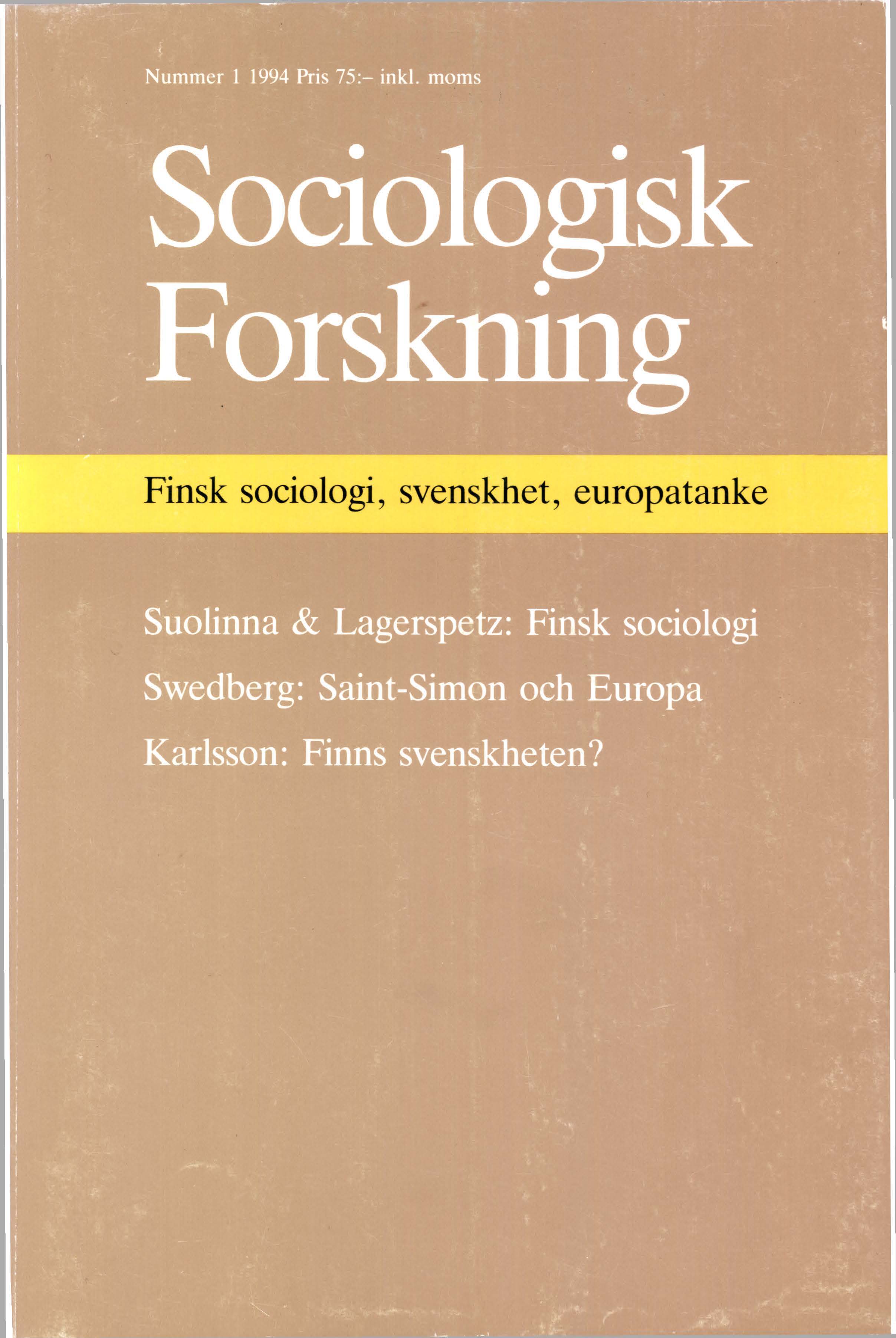Två kriser inom finländsk sociologi
DOI:
https://doi.org/10.37062/sf.31.18605Abstract
Two crises in Finnish sociology
The aim of the article is to compare two different institutional and paradigmatic crises in Finnish sociology. The first crisis occurred after World War II when the social sciences had to master new challenges posed by postwar Finnish society. At the University of Helsinkia new faculty was established which promoted modern social sciences. The earlier dominant Westermarck school lost its institutional position when the chairs where reserved for representatives of modern sociology. The Westermarck school’s scientific importance had diminished in the period between the two World Wars. Nevertheless the old Westermarckians got an opportunity to found the Westermarck Society as an interest group to promote Westermarck’s legacy. During the 1950s the Society gradually became dominated by representatives of the modern social sciences. The analysis presented in the article is based on protocols, letters and articles which document the old Westermarckians efforts to defend their scientific views and positions. The second crisis occurred during the 1960s and 1970s. The data consist of written documents but also interviews with sociologists at the universities of Helsinki, Turku and Tampere. The Westermarck Society as well as the Departments of Sociology at the Finnish universities were politicized during this period. By comparing the two periods of crises it is concluded that sociology is and was quite vulnerable to social and political influences. It can be argued that sociology as a science of society will always reflect ongoing political and social discourses and movements. However at times the involvement in these discourses may demand so much time and energy that it will hinder daily scientific routines and delay the achievement of results.
Downloads
Published
How to Cite
Issue
Section
License
All content in Sociologisk Forskning is published with immediate open access, under the Creative Commons license CC BY-NC-ND 4.0.
All content may be read, downloaded, shared and printed for non-commercial purposes, free and without fees. Contents may not be altered. When content is reused, author, source and a link to the copyright licence must be provided. The author retains copyright to their content. No publication fees are charged.





